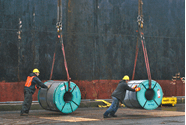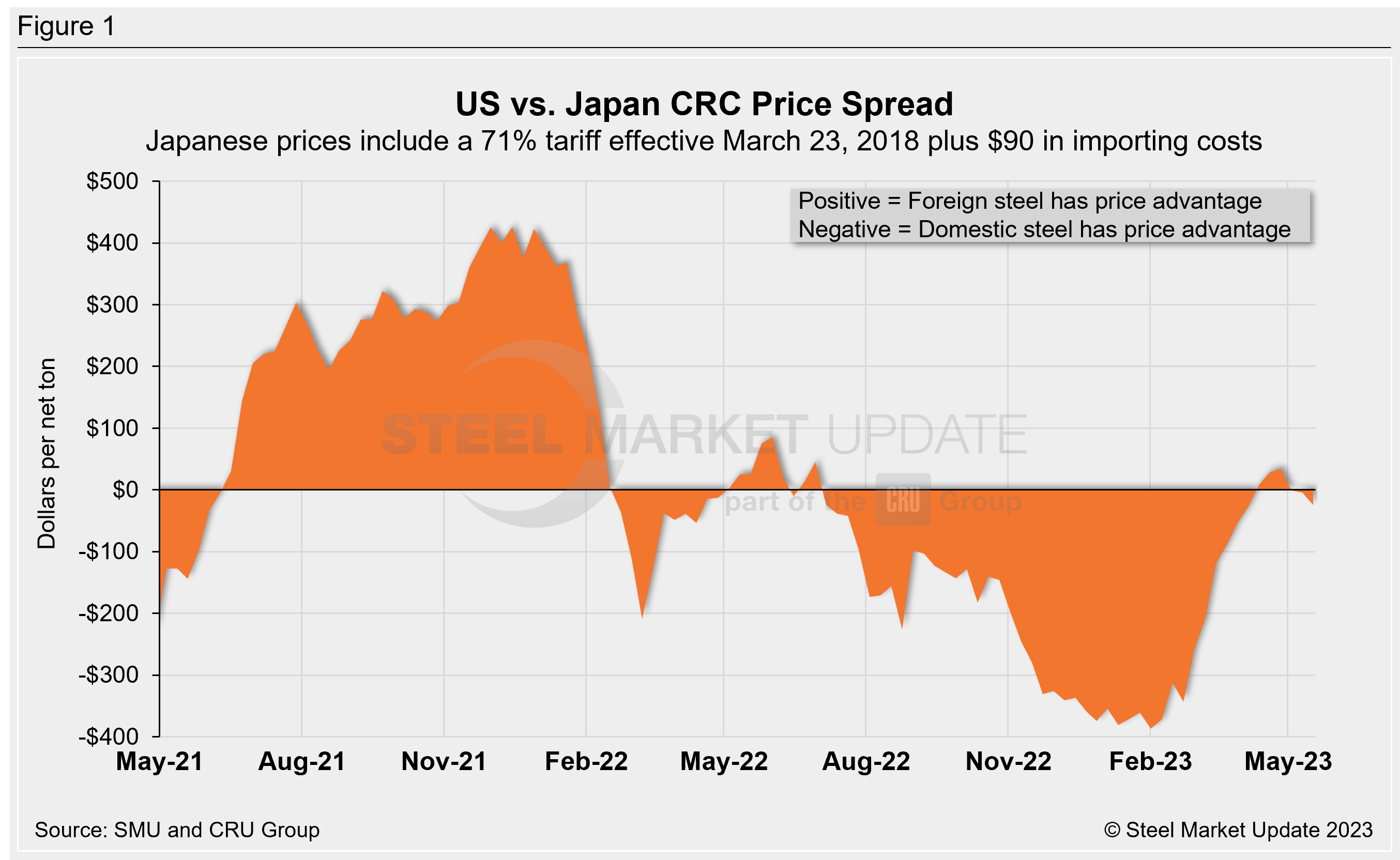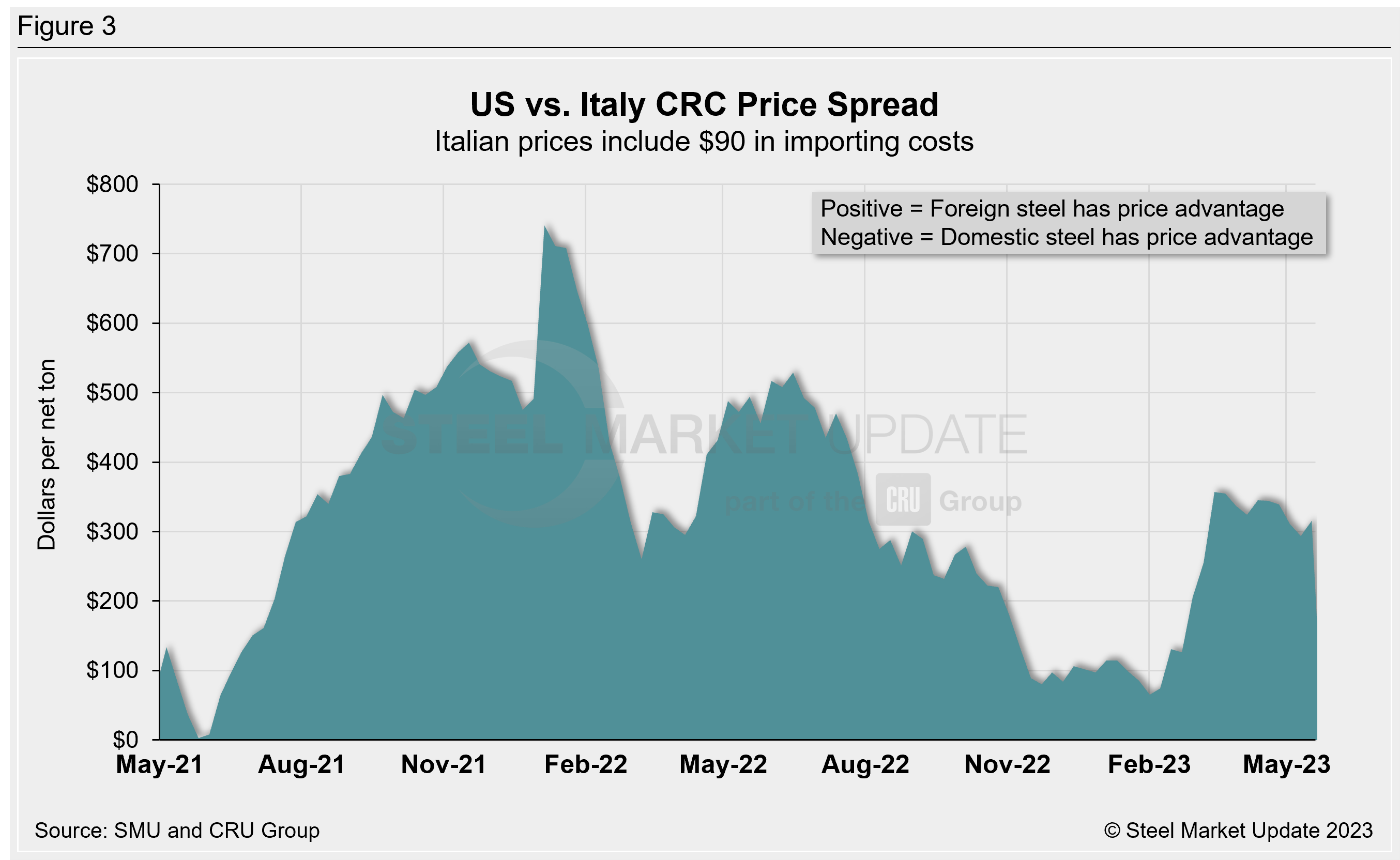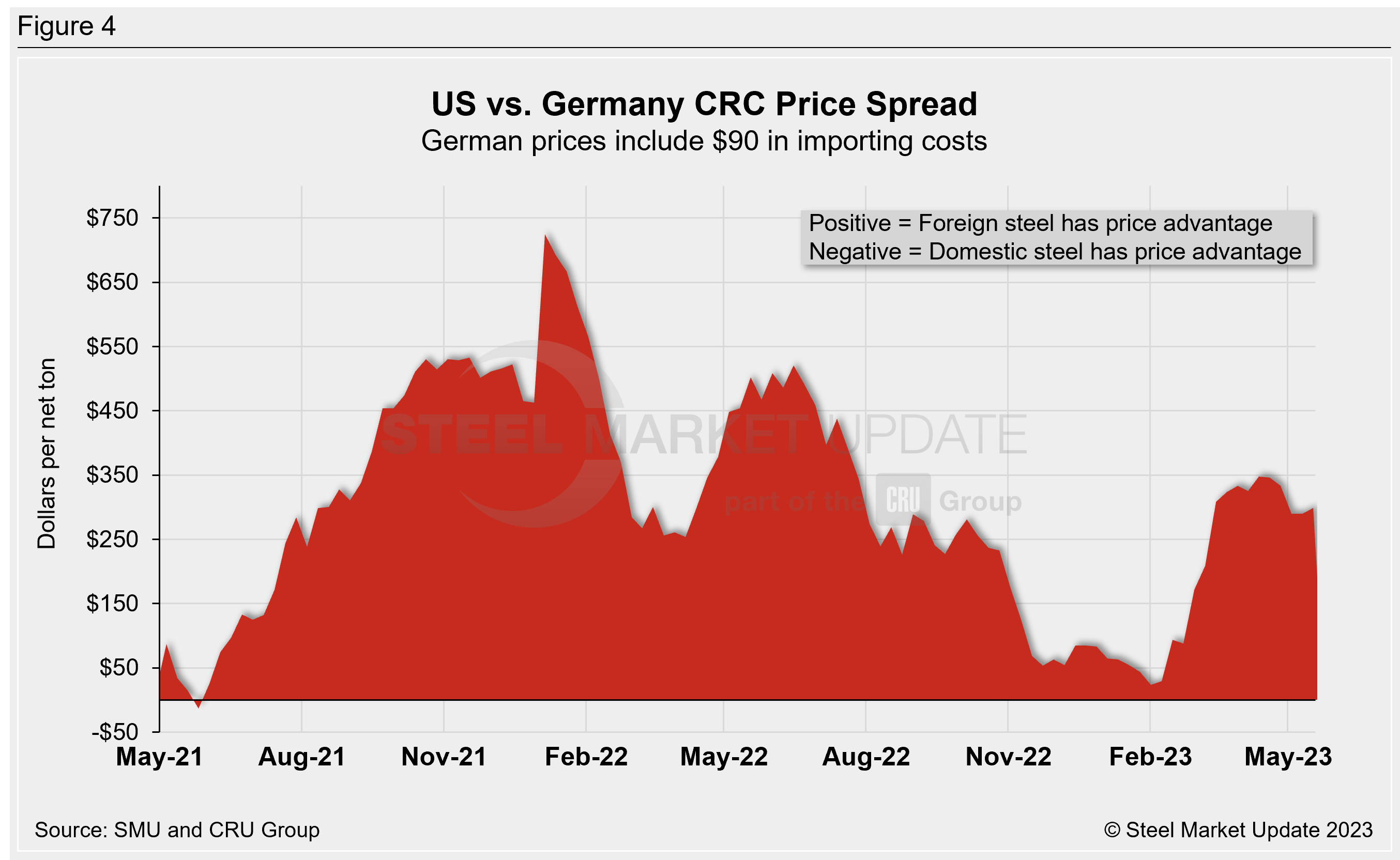Overseas

May 21, 2023
Cold-Rolled Imports Still Cheaper Than Domestic Product
Written by David Schollaert
Foreign cold-rolled coil remains much less expensive than domestic CRC even as prices in the US fall roughly in tandem with those abroad, according to SMU’s latest check of the market.
Domestic CRC was, on average, $77 per ton ($3.85 per cwt) more expensive than imported steel in the four regions we track as recently as early February. That premium ballooned to $413 per ton by mid-April, though it has declined more recently to $362 per ton on average.
While US prices remain well above prices abroad, declining lead times might cause US buyers to be more hesitant to buy imports. Recall that US CRC lead times had been at or above eight weeks from mid-March through early April but have since declined to approximately seven weeks.
SMU uses the following calculation to identify the theoretical spread between foreign CRC prices (delivered to US ports) and domestic CRC prices (FOB domestic mills): Our analysis compares the SMU US CRC weekly index to the CRU CRC weekly indices for Germany, Italy, and East Asia (Japan and South Korea). This is only a theoretical calculation because costs to import can vary greatly.
In consideration of freight costs, handling, and trader margin, we add $90 per ton to all foreign prices to provide an approximate CIF US ports price. Buyers should use our $90-per-ton figure as a benchmark and adjust up or down based on their own shipping and handling costs. If you import steel and want to share your thoughts on these costs, I welcome your insight at david@steelmarketupdate.com.
East Asian Cold-Rolled Coil
As of Thursday, May 18, the CRU Asian CRC price was unchanged at $699 per net ton, down $36 per ton from a month prior. Adding a 71% anti-dumping duty (Japan theoretical), and $90 per ton in estimated import costs, the delivered price to the US is $1,284 per ton. The South Korean theoretical price is $789 per ton. The latest SMU cold-rolled average is $1,260 per ton, down $20 per ton week on week (WoW), and down $115 per ton compared to one month ago.
US-produced CRC is now theoretically just $24 per ton cheaper than steel imported from Japan but $471 per ton more costly than cold-rolled imported from South Korea.


Italian Cold-Rolled Coil
Italian CRC prices increased by $18 per ton to $855 per net ton last week and are $86 per ton lower month on month (MoM). After adding import costs, the delivered price of Italian CRC is approximately $945 per ton.
Domestic CRC is theoretically $315 per ton more expensive following repeated price declines in Italy over the past month.

German Cold-Rolled Coil
CRU’s latest German CRC price fell $29 per ton WoW to $871 per ton and is down $68 per ton MoM. After adding import costs, the delivered price of German CRC is roughly $961 per ton.
Domestic CRC is now theoretically $299 per ton more expensive than CRC imported from Germany.

Figure 5 compares all five price indices. The chart on the left shows historical variation from Jan. 1, 2021, through present. The chart on the right zooms in to highlight the recent surge in US pricing.

Notes: We reference domestic prices as FOB the producing mill, while foreign prices are CIF the port (Houston, NOLA, Savannah, Los Angeles, Camden, etc.). Inland freight from either a domestic mill or a port is important to keep in mind when deciding where to source from. It’s also important to factor in lead times too. In most market cycles, domestic steel will deliver more quickly than foreign steel.
Section 232 tariffs are no longer considered in these prices. That’s because, effective Jan. 1, 2022, the blanket 25% Section 232 tariff was removed from most imports from the European Union. It as replaced by a tariff rate quota (TRQ). Therefore, the German and Italian price comparisons in this analysis no longer include a 25% tariff. A similar TRQ with Japan went into effect on April 1, 2022. South Korea is subject to a hard quota rather then the 25% tariff.
By David Schollaert, david@steelmarketupdate.com






